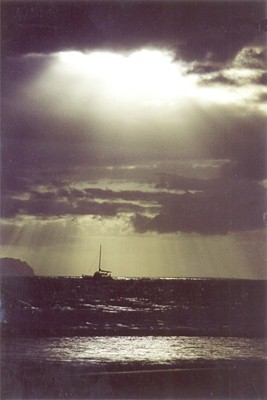All Nonfiction
- Bullying
- Books
- Academic
- Author Interviews
- Celebrity interviews
- College Articles
- College Essays
- Educator of the Year
- Heroes
- Interviews
- Memoir
- Personal Experience
- Sports
- Travel & Culture
All Opinions
- Bullying
- Current Events / Politics
- Discrimination
- Drugs / Alcohol / Smoking
- Entertainment / Celebrities
- Environment
- Love / Relationships
- Movies / Music / TV
- Pop Culture / Trends
- School / College
- Social Issues / Civics
- Spirituality / Religion
- Sports / Hobbies
All Hot Topics
- Bullying
- Community Service
- Environment
- Health
- Letters to the Editor
- Pride & Prejudice
- What Matters
- Back
Summer Guide
- Program Links
- Program Reviews
- Back
College Guide
- College Links
- College Reviews
- College Essays
- College Articles
- Back
Thai Fishing Industry's Dark Secret
Slavery in the Thai Fishing Industry
Tricked, Drugged, Kidnapped:
To begin with, there is illegal fishing going on throughout Thailand’s waters. Men that lose or can’t find jobs are mainly the amongst the victims. This is because ‘friendly’ men (who are the slave traders), offer the men drinks and jobs. The drink knocks out the future victim, and when the victim wakes up, they are on board the vessel, for the next seven or more years of their lives.
Slavery on boats:
The illegal fishing boats are the fourth-largest export of seafood in Thailand and all over the world, many slaves are drugged and kidnapped, some victims that found out about what was happening and refused to join and they faced the same fate. Most of the men of the vessels are promised jobs (which is another way they lure men into the boats), the men are promised a fair wage but receive no salary for all of their years on working on board the boat. Samart, one of the surviving victims, who is now helping out others who have experienced the same issues as him said “Being on a fishing boat is like having your life hang by a thread, Nobody should experience this,” When Samart woke up from his drugging he yelled and was beaten for possibly bringing attention to the ship. Fishermen on board are overworked and abused, some survivors have been abused so much that they face physical disabilities. People on have been murdered/killed on board, and their friends have watched on, with fear of the same fate in their minds. When slaves are found/kidnapped the slave traders pay about $500 - $1,000 per slave, to kidnappers. These innocent men, whom are forced to work on the boats, are facing issues like daily beatings. It’s a miracle that they survived.
Conditions on the boats:
Living Conditions are horrible, the labourers work from 7 AM to Midnight every day! They are given two or three meals a day, small meals. Crew sleeps on the deck floor, ten men to a small cabin or space. When the fishermen are given permission to sleep, it is around 3 AM or 4 AM and then they only get about three to four hours of sleep. Including the hours that they probably lay there in pain, or can’t sleep because of the solid wood floor. Punishment for crossing the captains is death, the people who are injured from fishing accidents don’t have any first aid kits, and finally, the slaves had to work on deck despite the weather. Occasionally, the captured men give fish to people, when they are the slave traders on board lock them up in a cell. One can spend four months in a cell with seventeen other people.
Rare Rescue:
Rescue, Since September of 2016 more than 60 victims have been saved from Thai Vessels on Indonesian waters. Whenever there is a message of rescue, it runs throughout the kidnapped men, who talk to each other and form plans to rescue two or three at a time, not to raise suspicion amongst the slave traders. The EU is saying that if Thailand doesn’t stop the slavery on fishing boats then they (the EU) will stop importing Thai fish/food. Media reports of the issues saved Saart, the industries of slavery on fishing boats has been leaked out through the media. Despite this, it is still difficult to find out how many people are trapped on board the many boats. “For some years there’s been a growing awareness of the endemic labour rights issues in the Thai seafood industry, which companies have repeatedly brushed under the carpet,” said Will McCallum, head of oceans at Greenpeace. Thai Captains - abuse, beat and traffic fisherman from boat to boat in places where seafood is good and worth a lot of money. Seafood caught by the vessels is illegal to buy and this puts pressure on Thailand’s £5.1bn ($6.5 bn) seafood export industry.
Solutions:
A solution to this issue is to have checks on every boat at every place they stop and before they leave. When two boats meet up the coastguards of the area should supervise what happens. Finally, awareness of these issues should be spread to every corner of the globe, because the biggest part of this issue is the fact that not many people know that it exists.

Similar Articles
JOIN THE DISCUSSION
This article has 0 comments.
